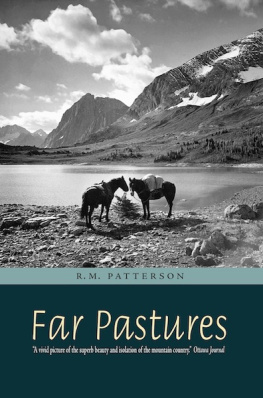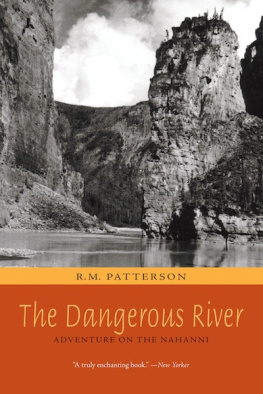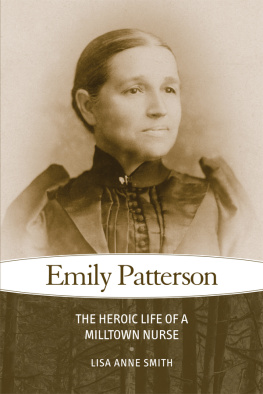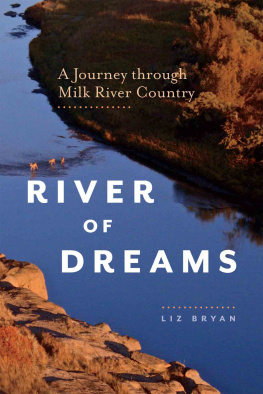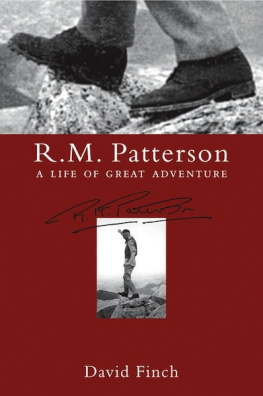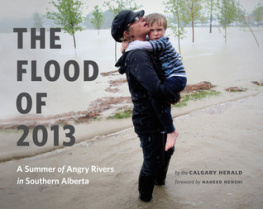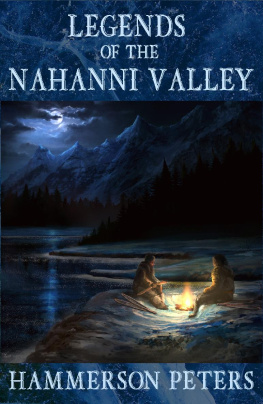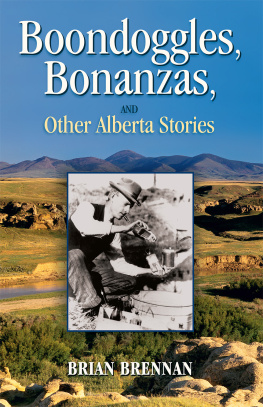Homesteading
The flood of homesteaders which, for some twenty hectic years around the turn of the century, submerged the old West, has now abated; in fact, except as regards a few isolated pockets of good land, it has dried up and vanished. In its day, and in the right districts, it laid the foundations for many a successful farm.
On the debit side, it did a vast deal of harm: in its unplanned onrush it broke up many a good ranch and turned wrongside-up hundreds of thousands of acres of the finest grassland, the selection of a thousand years of Natures testing. Greedy and ignorant politicians turned the homesteader loose in the semi-arid lands of the western prairies, counting only human heads and taking no account of human misery. But a rainy season might comeperhaps even two runningheartening the newly-arrived nester in the squat, sod-walled hovel which sat so forlornly on the bald-headed prairie, dwarfed by the optimistic, mortgaged barn. Good June rains, twice running, and then a phenomenal crop off the virgin landa very miracle, and one that confounded all the prophets of gloom!
That was when the mischief was done. Of course, reasoned the delighted homesteader, these old-timers, these ranchers with their warnings of dry seasons and long years of drought, are liars one and all, thinking only of hanging on to their grazing leases, worried for their creeks and springs. And home from the little sod-houses would go ecstatic lettersto cramped valleys at the head of Norwegian fiords, to bleak villages on the Baltic, to crowded Holland, to some labourers cottage deep in the Sussex Weald. And out would come a fresh spate of homesteaders, single men and familiesout to this amazing Eldorado where every man could pick and choose for himself 160 fertile acres. Inevitably they saw themselves as landed proprietors, for 160 acres was an estate back home in Western Europe.
But the prairies were not Western Europe. Nor, in southern Alberta, was a quarter-section an estate: it was just another peasant holding, only on a larger scale. And the dry years would come back, and the sun would blaze down, and the great white summer clouds would swing on eastwards, never unloading one decent shower of rain. The arid, hopeless summers would go byand, sooner or later, one more bust homesteader would say for the last time, To hell with it Im through!
Westward the course of empire would take its wayand some foothill ranch would gain a choreman, or a lumbercamp a teamster; or a cabin might spring up by some lonely mountain lake in British Columbia where there would be water and wood without end, and fish and game for the takingparadise after that sun-blasted, man-made desert of dust and weeds. And the mortgage company would own the vast, useless barn with the red paint now sanded off its south and west sides by the drifting soil; the lifeless, unwanted house; the acres of stinkweed and pigweed and tumbleweed, and the sagging fences. And a fat lot of good the outfit would be to the mortgage company (there was some consolation in that) for the rancher, too, by this time would be gonechased out by the nesters into the hills, into his last stronghold of the mountains. Not that he would have had the land back anyway, for as a grazing proposition it was ruined, a liability in place of an asset. That was the real futile tragedy of itthe destruction of that wonderful sod of grass, the drying up of the sloughs, the useless cutting of the trees that shaded the prairie creeks and rivers, the lowering of the water-table. Man, the desert-maker, at work.
That was homesteading on much of the bald-headed prairie of the south and west. But further north, in the parklands and the brush country, it was different. There might be more snow in wintertime, and some of the land might have to be cleared of treesbut there were, as will be seen, so many advantages that a man stood a very good chance of winning his bet with the government: 160 acres (or, in the case of an ex-soldier, 320 acres) to a filing fee of $5 that he couldnt stay the course and fulfill the simple conditions: six months residence in each of three consecutive years, so many acres broken to crop, so many head of cattle
While the main flood of homesteaders was over by the early Twenties, there still remained room in the West for late-comers. However, to find anything good you had to go further afieldperhaps into the Peace River country. There again, of course, the more accessible districts were settled pretty closely, at least as regards naturally open land. But if you went far enoughnorthwards, say, from Peace River town to Battle River on the Fort Vermilion trailyou could still find open prairie just as the Lord made it, with the black furrows of the buffalo trails cutting across it, threading between the poplar bluffs, running purposefully over the grassy uplands. There, if you were lucky, you could have the best of both worlds; for though the Battle lay a good five hundred miles to the northward of the Old Man River in southwestern Alberta, and though you were, literally, away back in the sticks, yet the Chinook, the warm southwest wind, would blow there for days on end in a good winterjust as it did on the Old Manlicking up the snow, laying the grass bare, making life sweet and easy for man and beast.
It was there that I came to anchoron the prairies of the Battle River. Settling there was the result of a chance meeting, for I had planned to go on north to Fort Vermilion. But that chance meeting was a piece of luck for me, for this bit of country had everything that the northern parklands had to offer to the earlier homesteaders, plus a few extra blessings of its own to boot.
There were open prairies with scattered woods and bluffs for shelter; there was timber on the low, fringing hills, and a good river with slow-flowing tributary creeks that could be dammed to make watering places the year round. There was plenty of gamedeer, moose, bear and prairie chickenand a certain amount of fur. And the Peace River, turning north at Peace River town, came within eight miles or so of the settlement. That made it possible to ship heavy goods (wire, lumber, nails, groceries etc.) downstream on board the old sternwheeler D. A. Thomas to our landing during the summer months when the muskegs to the south of the Battle River country were impassable. It then only remained to lug the stuff off the beach, haul it by wagon up the almost vertical trail to the plateau, and crash on home with it over the stumpsa proceeding that never failed to draw winged words from our storekeeper, Joe Bissett, who felt very strongly that, while we were about it, we might at least have cut the trees off reasonably flush with the ground.
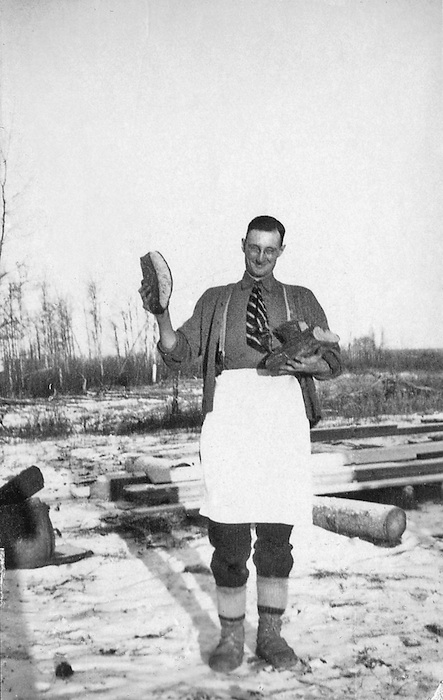
Patterson at his homestead, 1924
There was no village either north or south of the Battle River. Here and there lay a homestead, sometimes a group of homesteads as on Little Prairiebut otherwise a scattering of rampant individualists, men who needed room around them. They were men like Kiplings Voortrekker, of whom he wrote: His neighbours smoke shall vex his eyes, their voices break his rest.
And the Battle River prairies were the right place for them. For there was a time-lag there, due to the fact that these fertile grasslands formed, as it were, an island in a sea of bush, muskeg and gravelly hills. In the rest of the West it might have been 1924 when I first saw the Battle: here I had stepped back into 1900even into Biblical times in some ways, for grain was threshed with a flail on Little Prairie, and winnowed by tossing it with a scoopshovel in a high wind. Seed-grain was cleaned by putting it through a hand-turned fanning mill. Fields were seeded, more often than not, by means of a hand-operated broadcasterwhich meant that the owner tramped up and down his ploughing with the contraption slung around his neck, churning away at the handle much after the fashion of the old-time hurdy-gurdy operator, grain flying right and left; more or less, one hoped, in the right place.

